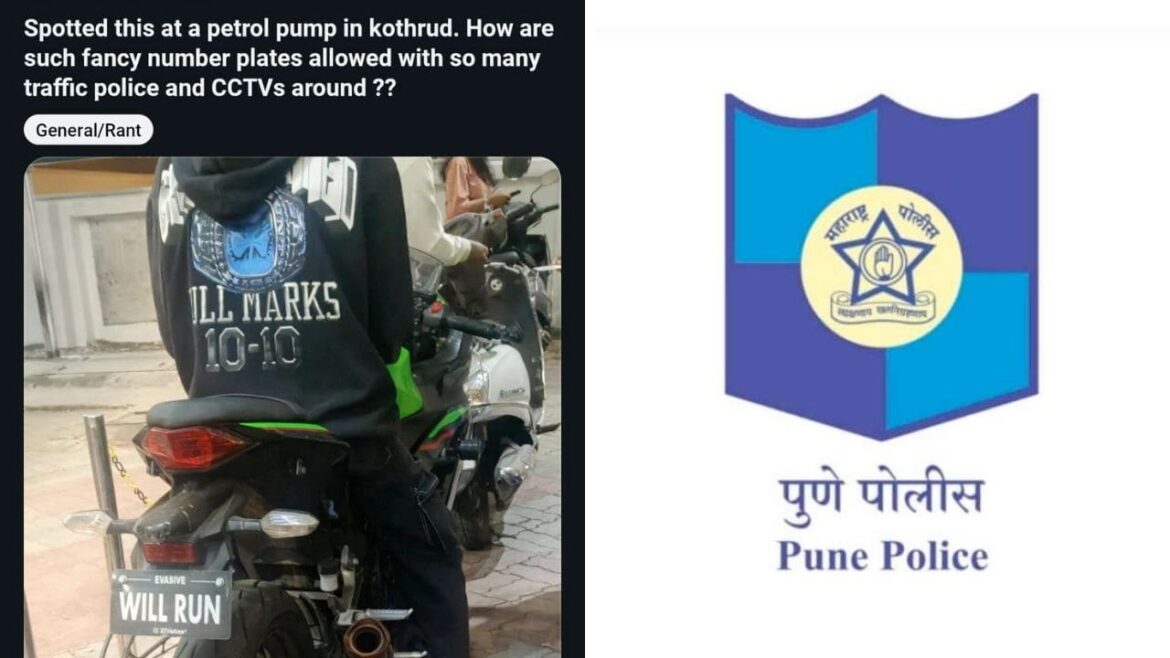A young biker from Pune ended up learning a big lesson after he tried to show off online. The biker posted a photo of his superbike with an illegal fancy number plate and added a bold message that indirectly challenged the police. What he expected to be a cool stunt turned into a viral case within hours.
This incident once again shows how social media has changed policing in India. Today, the police are active online, quick to spot issues, and even quicker to respond.
Digital Policing Is Changing India
In the last decade, Indian police departments have adapted to the digital world. From traffic updates to cybercrime tracking, police forces now use platforms like X, Instagram, and Facebook to connect with citizens.
This online presence has made it easier for police to trace violations that earlier went unnoticed. The Pune biker’s challenge is a perfect example of how authorities act fast when someone tries to misuse social media for attention.
The Biker’s Taunt: “Catch Me If You Can”
A 21-year-old, identified as Rahil, was seen sitting on his green Kawasaki Ninja bike with a stylish, illegal number plate that read “Will Run.” Fancy plates like these are banned under Indian traffic laws.
A social media user shared the picture online and tagged Pune Police while writing a daring caption that challenged the authorities. The photo, taken at a petrol pump in Kothrud, quickly gained attention.
The biker clearly did not expect his stunt to blow up in such a big way.
Pune Police Respond With Confidence
Once the post reached Pune Police, they didn’t ignore the challenge. Instead, they replied in a bold tone, saying they could and would catch the biker soon.
Their response created immediate buzz online, with many people watching closely to see what the police would do next.
Police Trace the Biker Within Hours
Just as promised, Pune Police tracked down Rahil in less than an hour. They took him into custody and later shared an update video, where the biker, with his face blurred, apologised for breaking the law.
He admitted that his friend had posted the photo online and that he never expected police to take such quick action. He also advised others not to repeat his mistake.
The police captioned the video with a warning, reminding everyone that traffic rules are serious and there is no “consolation prize” for breaking them.
Netizens React: “Don’t Try to Act Oversmart on the Internet!”
The incident quickly went viral, crossing nearly 2 lakh views. Many users praised Pune Police for acting fast and setting an example. Some joked about how Rahil’s “confidence” ended in just one hour. Others shared similar posts of people breaking rules.
Overall, most netizens supported the police and said strict action is needed to stop such stunts.
Conclusion
The Pune biker’s story is a strong reminder for everyone: social media is not a playground for showing off illegal activities. Police across India are now extremely active online and can act faster than most people expect. This incident also highlights the importance of responsible behaviour on social platforms. A harmless-looking stunt can quickly turn into legal trouble. In the end, rules exist for safety—and breaking them only leads to regret.
FAQs
What happened to the biker after the incident?
The biker was traced within an hour, taken into custody, and asked to remove the illegal number plate. He also issued a video apology.
Is using a fancy number plate illegal in India?
Yes. Any number plate that does not follow the official format is considered illegal under Indian traffic rules.
How did Pune Police track the biker so fast?
With enhanced digital monitoring, CCTV networks, and active social media teams, police can identify locations and people within minutes.
Why did the case go viral online?
The biker’s bold challenge and the police’s confident reply caught public attention, and the quick action made the incident widely discussed on social media.
What lesson does this incident teach?
It shows that trying to impress people online by breaking rules can lead to serious consequences. Digital policing is strong, and authorities respond fast.

